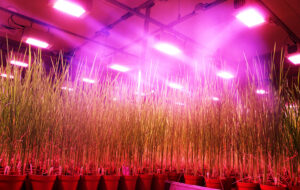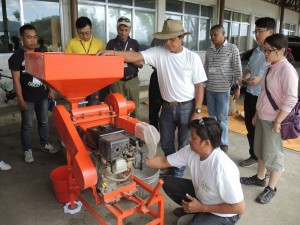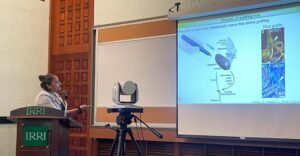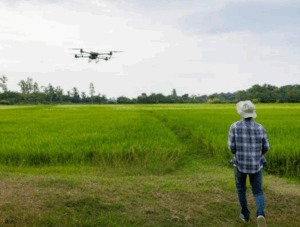The UN’s World Food Programme (WFP) says climate-smart agriculture will help Madagasca face the challenges posed by climate change such as drought and massive locust infestation.
It’s important to grow what works better accompanied by nutrition-sensitive agriculture, according to the WFP representative in Madagascar.
The agency appealed for more funds to help fight famine and prevent new locust plague in southern Madagascar.
Read the full story at Africanews
More on climate-smart agriculture:
Why do we need climate-smart agriculture ?
With many of the resources needed for sustainable food security already stretched, the food security challenges are huge. At the same time climate change is already negatively impacting agricultural production globally and locally.
Climate risks to cropping, livestock and fisheries are expected to increase in coming decades, particularly in low-income countries where adaptive capacity is weaker. Impacts on agriculture threaten both food security and agriculture’s pivotal role in rural livelihoods and broad-based development. Also the agricultural sector, if emissions from land use change are also included, generates about one-quarter of global greenhouse gas emissions.
Making farmers climate-smart through a farmer-driven approach
The International Rice Research Institute, with its intensive and innovative seed scaling program in Odisha, has been promoting Swarna-Sub1. The rice variety incorporates the SUB1 gene into the Swarna, the most popular variety in India. The SUB1 gene makes Swarna-Sub1 resilient to flooding of up to 17 days while retaining the desirable traits of the original variety.
Although the stress-tolerance trait of Swarna-Sub1 has been acknowledged by seed system stakeholders, including the Odisha State Seeds Corporation (OSSC) and the State Department of Agriculture, not many farmers know about this variety or have access to reliable sources of its seeds. In fact, Swarna-Sub1 has reached only 35% of the potential area in the entire state, according to an estimate by the OSSC.
Targeting women and the youth in disseminating climate-smart agriculture in Vietnam
The study on the adoption of Climate-Smart Agriculture (CSA) technologies by men and women in Vietnam is necessary to understand how the different social expectations, roles, status, and economic power of men and women are affected differently by climate change. It will improve actions taken to reduce vulnerability and combat climate change in the country.







